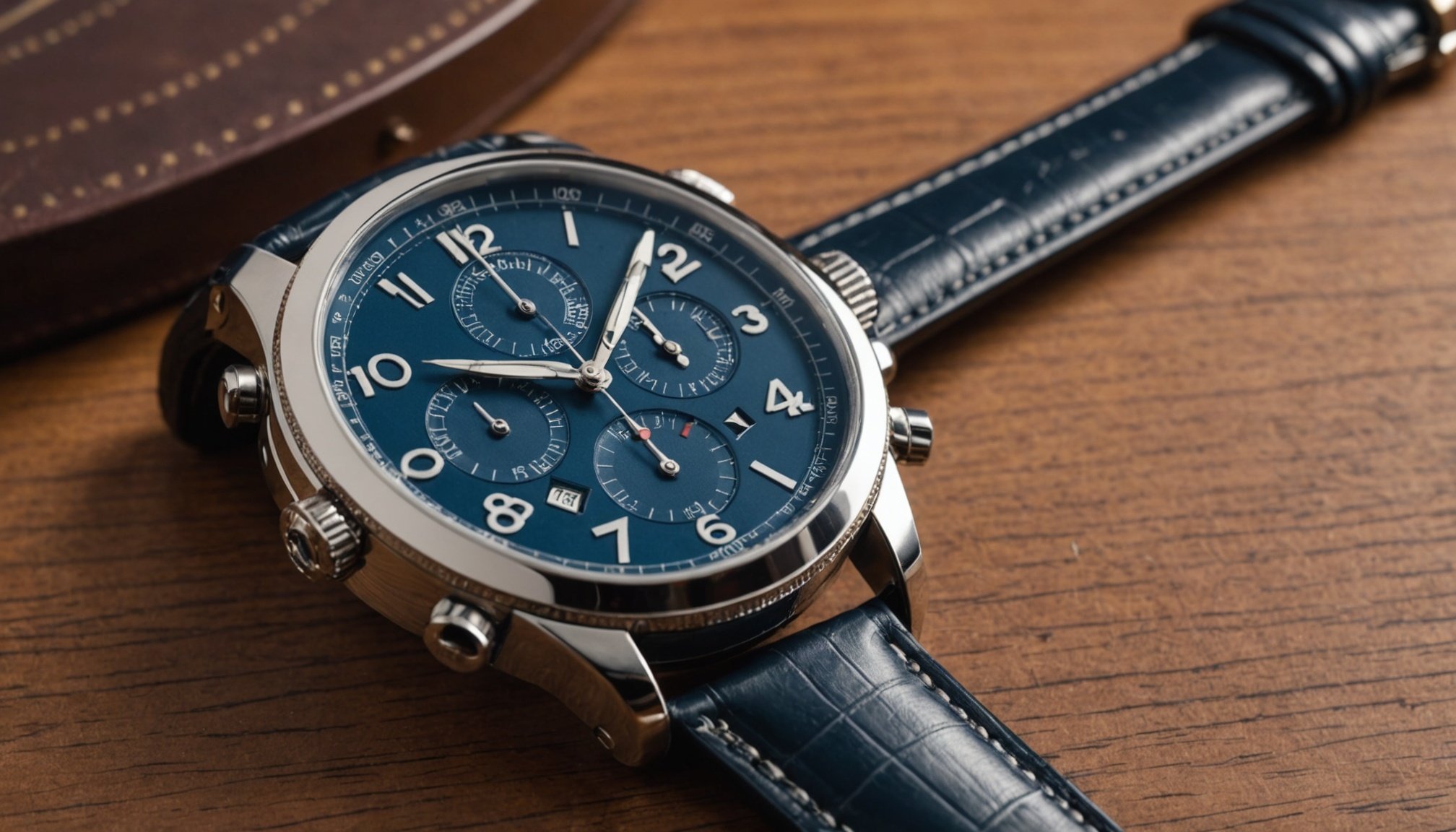Overview of UK Import Laws for Luxury Watch Retailers
Navigating UK import laws for luxury watches is crucial for retailers aiming to establish a reputable business. Compliance with these laws ensures the smooth operation of your enterprise, avoiding potential legal setbacks.
Key Regulations
Luxury watches fall under specific import regulations due to their high value. Retailers must adhere to detailed compliance standards, including providing precise documentation of the watch’s origin, value, and manufacturer details. These documents are mandatory for customs clearance.
In the same genre : Your ultimate guide to starting a uk virtual reality gaming venture: mastering age-appropriate content regulations
Importance of Compliance
Remaining compliant with legal requirements not only prevents financial penalties but also enhances trust with suppliers and customers. Compliance reinforces your commitment to ethically sourcing high-value goods, which can significantly impact your brand’s reputation.
Consequences of Non-Compliance
Failure to comply with UK import laws can lead to severe legal consequences, ranging from hefty fines to potential confiscation of goods. Retailers might also face long-term bans from importing, severely impacting their market presence. Understanding and adhering to these laws is not just a best practice but a necessity for maintaining a thriving business. By prioritizing compliance, luxury watch retailers safeguard their operations against legal and financial risks.
In the same genre : Creating a Thriving Organic Food Market in the UK: Your Ultimate Guide to Mastering Local Health Regulations
Tax Implications of Importing Luxury Watches
Navigating the tax implications when importing luxury watches into the UK is essential for maintaining profitability. The VAT (Value Added Tax), a major component, is typically levied at a standard rate of 20% on imported goods. This rate applies regardless of the sale price, ensuring uniformity in tax application. However, VAT calculations can be complex, depending on the watch’s value and its documentation accuracy during import.
When it comes to customs duties, these are calculated based on the fair market value of the luxury watches. They vary according to specific tariff codes, which categorise goods for duty purposes. These duties can add a significant cost to the import process; hence, understanding how they are determined is vital. Occasionally, there’s potential for tax exemptions or reliefs, especially if the watches fall under specific trade agreements or special schemes for re-export.
Being aware of these tax considerations helps retailers effectively plan their pricing strategies and ensure compliance, thus preventing unexpected financial burdens. Understanding the interplay between VAT, customs duties, and possible exemptions can streamline operations and enhance fiscal planning within the retail business model.
Customs Processes for Importing Luxury Watches
Understanding the customs procedures for importing luxury watches is essential for a seamless process. Key to this understanding is acquiring the required import documentation. Essential documents include a commercial invoice detailing the watch’s description, a packing list, and, if needed, certificates of origin to verify the product’s country of manufacture. These records must align with the declared values and origin to ensure smooth customs operations.
Navigating the Clearance Process
The clearance process for luxury watches involves several steps. First, the customs declaration must be accurately submitted, either electronically or in paper form, to initiate the review. Then, customs authorities assess the documentation and may inspect the goods to confirm compliance. Successful evaluation leads to the release of goods for entry into the UK market. Efficiency in this process reduces delays and potential storage costs.
Role of Customs Brokers
Employing customs brokers can alleviate complexities in navigating the importation process. These professionals possess expertise in handling formalities and can expedite clearance by ensuring all documentation is accurate and complete. Brokers serve as invaluable intermediaries between retailers and customs, enabling businesses to focus on core operations while ensuring regulatory compliance.
Industry-Specific Considerations for Watch Importation
Entering the luxury watch industry in the UK presents unique challenges. High-value luxury watches are subject to special regulations and considerations, affecting market entry strategies. Retailers must meticulously understand UK import laws, ensuring compliance to avoid issues. These laws often demand detailed documentation—such as proof of authenticity and precise information on the watch’s origin and value—aligned with customs regulations.
Navigating these challenges requires a clear strategy. For example, prospective market entrants should engage with industry experts to gain insights into best practices. Engaging professionals like customs brokers can also alleviate complexities, allowing retailers to focus on core business operations.
An understanding of specific legal requirements and compliance obligations is crucial. Engaging with trade bodies or legal advisors who understand the intricate landscape of luxury watch imports can provide invaluable guidance. This ensures that businesses meet special regulations and can position themselves effectively in the UK market.
Furthermore, fostering relationships with reliable suppliers and staying informed about evolving industry trends enhances market positioning. By prioritising compliance and leveraging expert insights, businesses can enter the UK luxury watch market more strategically and successfully.
Common Pitfalls in Importing Luxury Watches
When importing luxury watches, numerous retailers fall into common traps that can lead to significant compliance failures. A prevalent mistake involves incorrect or incomplete import documentation, which can delay customs clearance or result in legal repercussions. Ensuring accuracy in these documents is vital to prevent delays and additional costs.
Another frequent error is misunderstanding legal requirements related to the importation of high-value items. Retailers might overlook specific regulations, such as the need for detailed proof of authenticity and the correct categorisation of goods under tariff codes. Such oversight can lead to legal issues, including fines or the seizure of merchandise.
To sidestep these pitfalls, retailers should engage in best practices like consistent record verification and employing experienced customs brokers. These brokers can provide invaluable guidance and ensure all procedural aspects are correctly addressed, minimising risks.
Case studies illustrate these errors. For instance, a retailer overlooked a minor documentation detail, resulting in costly shipment holds. By analyzing these cases, retailers can learn strategies to avoid similar mistakes. Emphasising compliance and due diligence can dramatically enhance successful navigation of import laws in the luxury watch market.
Actionable Tips for Luxury Watch Retailers
Successfully navigating UK import laws involves adopting strategic practices that keep compliance front and centre. Retailers must prioritise detailed record-keeping and timely documentation checks to prevent potential issues. These best practices ensure accuracy in customs declarations, which is a cornerstone of seamless operations.
Engaging with resources and tools is imperative for maintaining compliance. Digital platforms can automate documentation processes, reducing human error. Retailers are encouraged to leverage these technologies to enhance accuracy and efficiency in managing import tasks.
Moreover, continuous education on evolving regulations is vital. Regulatory landscapes shift frequently, making it crucial for retailers to stay informed. Participating in industry seminars, engaging with trade bodies, and subscribing to trade publications can offer valuable insights into the latest requirements. An informed retailer is a compliant retailer.
Building robust relationships with customs brokers and legal experts is also beneficial. These professionals offer guidance, ensuring documentation is error-free and procedural requirements are met.
By implementing these importing tips, retailers not only enhance their compliance strategies but also streamline operations in the luxury watch market. Ongoing engagement with the latest practices and resources fills knowledge gaps, safeguarding against legal pitfalls.
Expert Insights and Case Studies
For retailers navigating the intricate world of luxury watch importation, expert advice and case studies can offer invaluable perspectives. Industry specialists emphasise the necessity of understanding UK import laws comprehensively. When asked about key strategies for success, experts advise meticulous documentation and thorough compliance checks. According to Jane Doe, an import compliance consultant, “Document accuracy and regular training on evolving regulations are crucial pillars for sustaining smooth operations.” This underscores the importance of continual learning in an ever-changing regulatory environment.
Successful case studies illustrate the benefits of methodical approaches. For instance, an emerging luxury watch retailer streamlined its import process by employing dedicated compliance teams and leveraging technology for documentation automation. This strategy not only reduced errors but also ensured faster customs clearance. Retailers gain insights from such examples by observing how technological tools and specialised personnel can significantly improve their processes.
Highlighting lessons learned, experts recommend adopting proactive measures involving customs brokers to minimise risks. Brokers play a pivotal role by offering indispensable guidance, leading to more efficient and hassle-free import practices. By learning from experienced professionals, retailers can better position themselves for success in the luxury watch market.







